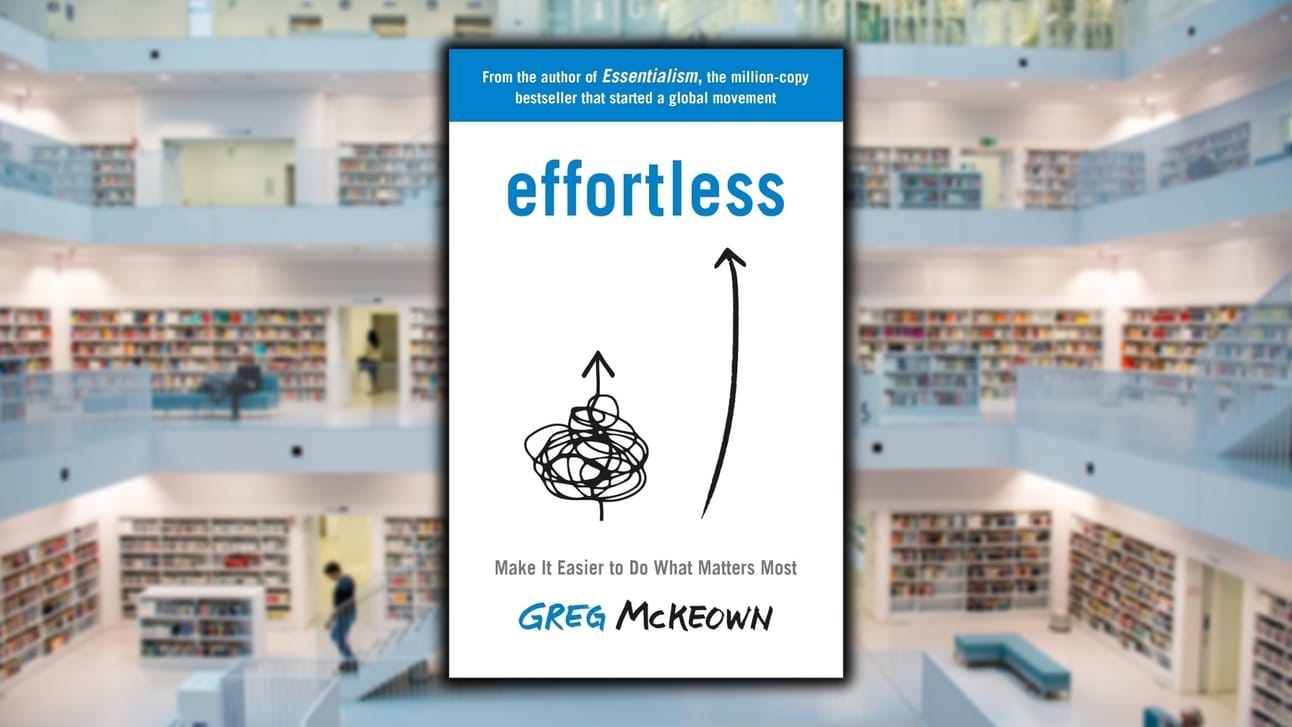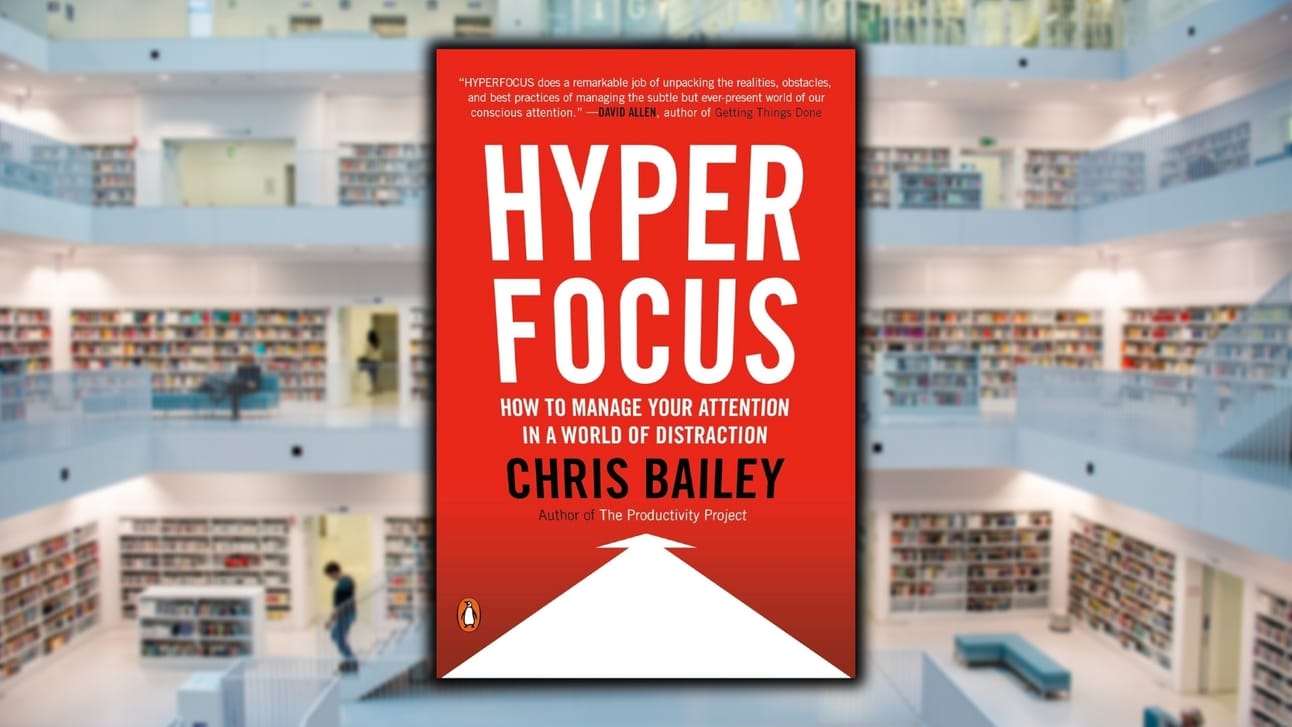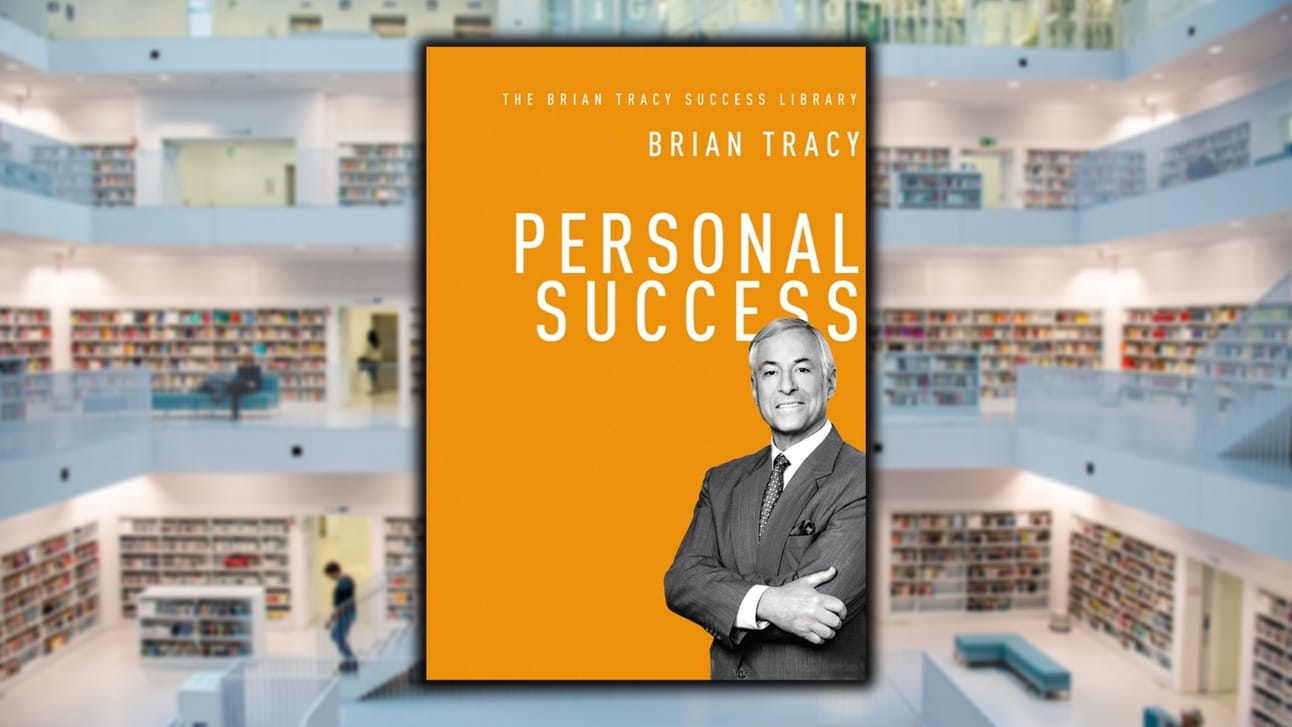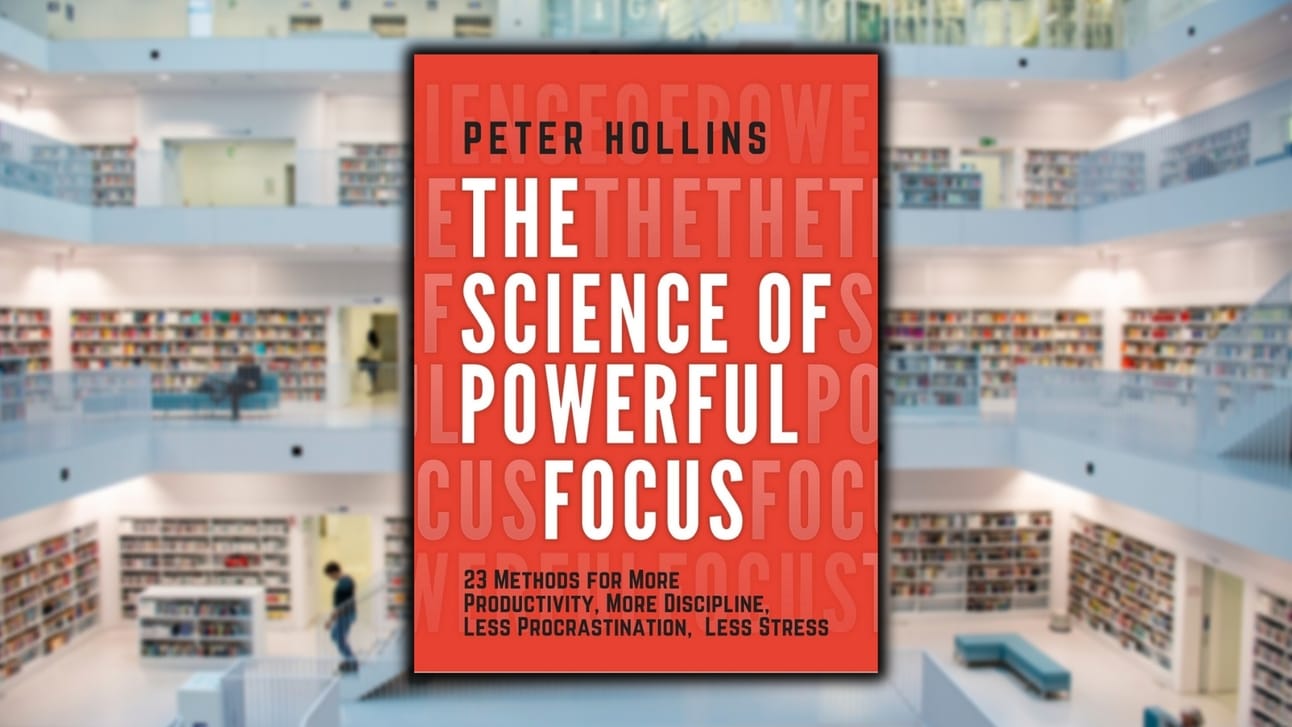I almost forgot to celebrate this with you, but we recently passed 6,000 subscribers to The Reading Life! Six thousand! Wild.
Literally couldn’t have done it without you (what’s a newsletter without readers?), and so I want to extend my sincere thanks and appreciation to every single one of you.
I don’t take your time and attention for granted, and with each newsletter I hope that at least one of these books changes a few lives, just like they did for me.
Tonight we’re talking about elite focus and productivity, and these 10 books will absolutely help you get there.
I can’t think of anything more concentrated than a laser beam, but if such a thing exists (black holes, I guess?), that would accurately sum up the level of focus and drive that these books helped me cultivate.
Not only that, but several of them will also help you focus on the right things (incredibly important) and help you recover properly, prevent burnout, etc. All essential skills for high performers seeking both effectiveness and longevity.
A couple of highly-anticipated pre-orders to tell you about too.
You know I’m looking forward to Protocols, by Dr. Andrew Huberman, and The Art of Spending Money, by Morgan Housel, but I’m also really looking forward to reading:
To name just three!
It’s actually more than a little bit insane how many fantastic books are coming out (and how many god-awful ones!), but I promise to do my best to bring you the most transformational ones, and the ones that are most deserving of your limited time.
Now…before our coffees get cold, let’s read!
Tonight, Inside The Reading Life, We’ve Got:
We’ve got lots to learn today, so let’s hit the books!
“Failing to realize your potential is a terrible punishment.”
“I’ve found that my sense of confidence increases substantially when I read books, listen to podcasts, or watch videos with stories of people succeeding in the areas in which I want to feel more empowered."
In this book, Ali Abdaal, a former medical doctor and the world's most-followed productivity expert, takes issue with the idea that productivity has to be about discipline and drudgery at all. It can be about joy.
Feel-Good Productivity is based on the idea that we'll get more done by making work feel good, instead of dragging ourselves through it, regardless of how we feel.
The approach Ali lays out in the book is supported by a litany of scientific studies, empirical observation, and personal experimentation, and it's laid out in an extremely practical way, featuring 54 "productivity experiments" you can conduct on your own to put these insights into action.
The book also contains overwhelming psychological and neuroscientific evidence for why positive emotions fuel success, and how feeling good in your work can boost your energy, soothe your stress, and improve your life.
I'd never try to claim that discipline doesn't matter at all, or that it can't be extraordinarily valuable in a wide variety of situations, but what I love about Feel-Good Productivity is that Ali doesn't make it a matter of "discipline or nothing."
Success and fulfillment is possible without constant pain and suffering, and for the majority of the work that most of us do each day, it's probably more joy that would help us out the most.
Work isn't always going to feel good. Sometimes you do have to suffer (at least temporarily) for what you want in this life. But it's far from the only way there is to succeed, and Ali's book is the perfect counterbalance to that claim.
Discipline shouldn't be the default; it should be that extra gear that you drop into occasionally when you really need to dig deep.
“The world is bursting with wonder, and yet it’s the rare productivity guru who seems to have considered the possibility that the ultimate point of all our frenetic doing might be to experience more of that wonder.”
Adam Grant said that this is the most important book ever written about time management, and I’m certainly inclined to agree.
Burkeman’s approach has always been the “negative” one, by which I mean operating by negation – eliminating rather than adding.
For example, his “negative” approach to happiness outlined in his earlier book, The Antidote, meant embracing suffering, and doing things that are challenging, instead of running from them - which would have, paradoxically, led to more suffering over time. That book basically dealt with the famous question: “Do you want an easy life? Or the strength to endure a difficult one?”
If you’re wise, you’ll take the strength every time! And here in Four Thousand Weeks, where time management is concerned, he counsels giving up the idea of ever getting everything done.
He says that you’re never going to get to a point where you feel like you’re totally on top of everything; and the very effort is wearing us out, stressing us out, and leading us to waste our absurdly, terrifyingly short lives on trivia and nonsense.
The amazing news he’s delivering is that you’re never going to get everything done! Productivity is a trap, because the faster you complete the work assigned to you, the faster more work is going to be assigned to you!
There’s always something else that could be done, but if, instead, we embrace our mortality and our limited timescales, we can make the absolute most of the time we do have, and emerge with a life that’s both truly meaningful, and truly our own.
Principle #1 - Do Fewer Things: “Strive to reduce your obligations to the point where you can easily imagine accomplishing them with time to spare. Leverage this reduced load to more fully embrace and advance the small number of projects that matter most.”
Principle #2 - Work at a Natural Pace: “Don’t rush your most important work. Allow it instead to unfold along a sustainable timeline, with variations in intensity, in settings conducive to brilliance.”
Principle #3 - Obsess Over Quality: “Obsess over the quality of what you produce, even if this means missing opportunities in the short term. Leverage the value of these results to gain more and more freedom in your efforts over the long term.”
Cal Newport’s concept of “deep work” has seeped into public consciousness ever since the publication of his book of the same name, and likewise, Slow Productivity advocates for a more intentional, “slower” type of productivity centered around doing less, but better.
The norm in most modern workplaces, however, is a kind of frenetic, always-on, “extreme productivity” that prioritizes looking productive, seeming to get a lot accomplished, but rarely produces anything of real substance or worth.
Oh, and also doing all of the above sickeningly fast, with no regard for employees’ mental health, or even physical health, to say nothing of “spiritual health,” whatever that means for you.
Personally, I’m often found squarely in the extreme productivity camp. I work all the time, flat-out, with no intention of “taking it slow.” But even I try to do it in a humane, sustainable way, not sacrificing sleep and all human contact just to satisfy some boss or company that will never care about me the way I care about my own well-being.
I push myself extremely hard to achieve ambitious, hard, clearly-defined goals, but I absolutely see the merits of Newport’s approach, and I do incorporate elements of it in my own life.
For one, I work in “seasons.” In my current season, I work 16-hour days (inclusive of working out and reading), and I aggressively pursue the accomplishment of work that matters to me.
But I’m not going to work 16-hour days forever - this is just the season I’m in right now. And I make sure to take extended, ultra-relaxing breaks periodically to keep myself refreshed and renewed. My work is seasonal, and that’s the way humans have always done their best work, just like Newport suggests.
Slow Productivity is also much more practical than one might think, and I’d say that most people who criticize his approach and are so quick to say, “Well that could never work in my job,” haven’t actually read the book!
I was actually extremely impressed with some of his suggestions, and I can see them working for most everybody to help them regain their sanity, reclaim their schedules, and rethink their priorities.
“It’s like we all automatically accept that the ‘right’ way is, inevitably, the harder one. In my experience this is hardly ever questioned.
Indeed, if you do challenge this sacred cow, it can be uncomfortable. We don’t even pause to consider that something important and valuable could be made easy. What if the biggest thing keeping us from doing what matters is the false assumption that it has to take tremendous effort?
What if, instead, we considered the possibility that the reason something feels hard is that we haven’t yet found the easier way to do it?”
This is the follow-up to McKeown’s excellent book, Essentialism, which breaks down the art of stripping down your activities and efforts to what is, well…essential, and leaving it at that.
We live in an age of limitless possibility and opportunity, but the price we pay for that is full consciousness of everything that we could do but don’t have time for. Essentialism was about simplifying our schedules and strategies, and Effortless is about reducing complexity and hardship.
Some things work the best and can help you attain the best results because they are hard, such as, say, doing squats, as opposed to leg extensions at the gym. There’s no question that squats deliver the most impressive gains in muscle mass as opposed to leg extensions, but squats are also really, really hard, which is why most people don’t do them.
However, equating difficulty with effectiveness is a dangerous error, says McKeown. Just because something is hard, doesn’t mean that it’s the best way to do things. What if our most challenging tasks could be made easier? That’s what Effortless is about.
The hero is not the person who stayed at the office until midnight, slaving away at an impossible task; the hero is the person who left early because they found an easier way to achieve the same results. Discern the difference between laziness and effectiveness, and effortless results become possible for you.
Another major theme here in this book is recovery and burnout prevention, and I would say that it’s certainly the part of the book that has the potential to improve many people’s quality of life the most.
Stress is literally killing the modern workforce, but Effortless is the antidote. Inside its pages, you will learn about the Effortless State, Effortless Actions, and Effortless Results, and also about how to leverage your assets to bring more of what matters to you into your life and eliminate the excess.
“The multiple demands on an entrepreneur’s time are extraordinary. I am here to tell you that you need to take extraordinary measures to match those demands. Measures so radical and extreme that others may question your sanity.
This is no ordinary time management book for the deskbound or the person doing just one job.
This book is expressly for the wearer of many hats, the inventive, opportunistic entrepreneur who can’t resist piling more and more responsibility onto his own shoulders, who has many more great ideas than time and resources to take advantage of them, and who runs (not walks) through each day. I’m you, and this is our book.”
This book could add years to your life, and that's not an exaggeration in the slightest. It'll certainly save you thousands of hours worth of the most precious natural resource in this universe: time.
Dan Kennedy is the multimillionaire author of an entire series of books for entrepreneurs, but this one can and probably should be read by just about everyone, if for no other reason than that Dan's one of the very few people I've encountered who truly and honestly - viscerally understands the true value of time.
He understands its supreme importance, its utter irreplaceability, and also, in the case of entrepreneurship, how to turn time into wealth. That's what this book is about. It's about more than "just" money though.
Dan's is a radical, obsessive approach to time management that may be your best defense against the relentless onslaughts of what he calls "Time Vampires" and the relentless demands on your time, focus, and attention that come with living in the modern world.
Simply put, he's a phenomenon.
For starters, the guy almost exclusively communicates with his business clients via fax. This is because he found that way more thought tends to go into a fax, as opposed to when you hand over your email address and anyone can bother you at any time with the smallest thing that popped into their head. But he's even more extreme than that.
I mean, a fax machine in 2025...that's pretty extreme, and there are people who misunderstand the true purpose of forcing people to communicate with him that way. But he also surrounds himself with intense, visual reminders of the relentless passing of time, such as the hangman's noose he has facing him at his desk. Not. Subtle.
So yes, for all those reasons and more, Dan's book represents a fanatical, obsessive, positively...extreme approach to time management. It's written expressly for entrepreneurs and business owners who are constantly balancing competing priorities, responsibilities, and dwindling resources, and it's full of ruthlessly effective time management strategies that could change everything for people like you and I.
All told, this is definitely a book you may want to keep close by as you start taking back your calendar, dodging pointless meetings, and driving stakes into the hearts of Time Vampires.
I came away with 15 full pages of notes, and Dan's strategies and outlook made a profound difference in how I live my life and how I spend my time - which is pretty much the same thing.
“The most urgent and stimulating things in your environment are rarely the most significant. This is why switching off autopilot mode is so critical.
Directing your attention toward the most important object of your choosing - and then sustaining that attention - is the most consequential decision we will make throughout the day. We are what we pay attention to.”
Hyperfocus is one of the better books out there (and certainly one of the most comprehensive) on focus, attention, and productivity.
It’s his follow-up to The Productivity Project, which I also enjoyed, and he explains in simple, helpful terms how to use this amazing, though limited gift of time and energy we receive each day.
As he says, what you pay attention to becomes your life, and so you have to be extremely selective about what you allow into your attentional space.
You need to ruthlessly curate your own reality, or else it’ll end up filled with other people’s priorities, other people’s agendas, or, perhaps even worse, nothing meaningful at all.
Chris Bailey also makes the extremely important point that productivity means doing exactly what you intended to do, even if that’s simply resting. If you intended to do nothing but read all day, lazily relaxing with a cup of coffee (or 8) while you take a break from the world, then you’re still being perfectly productive.
I think that’s so important for people to understand!
So many people feel “guilty” when they’re not working, and there’s just something so…self-defeating about that. It was great to read about Chris Bailey’s stance on that issue. It shouldn’t even be an issue. Human beings need rest and relaxation, in exactly the same way we need to engage in meaningful work. A full life includes healthy portions of each.
There’s also a ton of excellent material in this book about maximizing creativity and learning, and it’s worth reading for those chapters as well. The biggest takeaway, though, is that what you pay attention to matters. It needs to be intentional, and conscious, if your life is going to mean anything at all.
“With the average person spending four-plus hours a day on their smartphone and another four-plus hours watching TV shows, distraction is quite literally a full-time job."
Books are like a handful of silence, and books like Make Time are like an oasis of sanity and calm within the chaos of our busy, ever-accelerating lives.
The authors, Jake Knapp and John Zeratsky are two tech innovators with deep domain experience and expertise who recently made the shift from being part of the problem to being part of the solution.
They've also spent years experimenting with their own habits and routines and engaging thoughtfully with the deeper questions of the proper role of technology in our lives, and the end result is this book.
Make Time presents a dead-simple, 4-step system for setting daily targets, improving focus, eliminating distractions, optimizing energy, and reflecting on what works for you and what doesn't so that you can begin to design your days and become the intentional architect of your own life.
Jake and John also identify two primary obstacles to deep focus and daily joy, which they refer to as Infinity Pools and the Busy Bandwagon.
Briefly, something is an Infinity Pool if you can scroll or refresh at any time to access a virtually infinite reservoir of new and stimulating content that's designed to constantly pull you away from your most important work. Think YouTube, Gmail, Netflix, etc.
The Busy Bandwagon refers to the always-on, go-go-go ethos of relentless productivity and 24/7/365 access to your mind by anyone who wants you to place their priorities ahead of your own. Demanding bosses, unrealistic expectations of coworkers, the treadmill of email, etc.
Make Time isn't supposed to be a complete diagnosis and cure for the state of distraction in the world today - it's just supposed to help you make some time for the things that are actually important to you and to bring more joy into your work and your life. And at that task, the book succeeds beautifully.
Alongside the 4-step strategy for making time, the authors include 87 different tactics that will actually help you do that!
The whole book feels like a conversation between the two of them and the reader - like the person reading it is a really terrific friend of theirs that the authors want to see succeed and be happy.
Gaining distance from your defaults is going to be one of the greatest benefits that this book will give you. It's also uniquely difficult to do, because, by definition, defaults are basically habits. They're automatic, and so we need a consciously-chosen system for changing those defaults.
Make Time is that system; Jake and John are your friendly and knowledgeable guides, and freedom is about to become your new normal.
“You can have almost anything you want in life, but first you have to decide what it is.”
This is a short volume by personal development legend Brian Tracy, and I can never summarize a book of his without mentioning how hugely impactful he was on my very earliest development.
He was one of THE guys who helped me get into this stuff at an early age, and I’ve benefited from his personal and business wisdom for more than a decade.
Brian Tracy is the real deal.
It won’t take you long to read this one, and although it’s not the most groundbreaking book ever written about personal success and productivity habits, it’s absolutely worth reading, if only for a quick, enjoyable review of some important concepts in the field.
Mindset and belief systems play heavily in this book; you know, the kind of “soft” skills that the people who don’t practice them look down on. Well, don’t you make the same mistake!
Sure, there are charlatans out there who claim that it’s all about mindset - probably because they’re not skilled in anything else - but it’s absolutely wild how even small shifts in your thinking can lead to massive, cascading benefits both immediately and over the next 3-5 years. Indeed, for the rest of your life.
“Good time management and personal productivity begins by valuing your life, and every minute of that life.”
This is a short, easily-digestible addition to Brian Tracy’s “Success Library” of books, and the title pretty much tells you everything you need to know!
While I don’t necessarily think it covers everything one needs to know about time management, it’s very well worth reading, it’s fairly broad in its scope, and it includes discussions about how consequences can help you define what’s truly important, and what kind of commitment to time management it takes to become a top performer - but also an extremely valuable detour into what you’re managing your time for.
Read this book if you want to get ahead in your work and/or career as quickly as possible, while staying organized and moving your important projects forward, sure, but as Brian Tracy says, the main point of time management is to help you improve the overall quality of your life.
Time management skills are just a huge waste of time if you’re only going to use them to build a life you don’t want to live.
“Setting a goal brings clarity to our desires and gives direction to our thoughts and actions, even when we aren’t consciously focusing on it. Our intent remains active in the back of the mind, influencing our choices and setting us up for success.”
Okay, so this isn’t the most riveting self-improvement book out there, but it’s extremely actionable and it could be a tremendous help in stimulating your willpower, concentration, and productivity.
What it lacks in page-turn-ability, it more than makes up for in practicality, is I guess what I’m saying!
Hollins is a prolific writer with a number of Amazon bestsellers, and he’s known for writing self-help manuals packed with science-backed tips and advice.
In this book, it’s all about self-discipline, willpower, getting more done, jacking up your focus, etc. It’s also quite short, so it’s not like you’ll have to sludge through some giant textbook.
Just take what you need, apply it, watch your life get a little bit better, come back for more, and repeat.
You don’t have to read this one front to back, although I did. Instead, you could just view my notes (linked below) and see if you want a more fully fleshed-out explanation of any or all of these ideas, tactics, and strategies for effortless focus, deep concentration, and high performance.
Forward this to a friend you think would love this book!
If you were sent this newsletter, click here to subscribe.
To read past editions of The Reading Life, click here.
Click here to recommend The Reading Life on Twitter (X).
OK, that’s it for now…
I’ve got plenty more excellent book recommendations coming your way soon though!
There’s also my YouTube channel, where I publish book reviews, reading updates, and more each week.
And if you want to learn how I’ve built an audience of 160,000+ followers across social media, became a full-time creator, and how I’m rapidly growing my audience and my profits in 2025, join us inside Creator Launch Academy and that’s exactly what I’ll teach you — we’d love to have you in the community!
With that said, I hope you enjoyed this edition of The Reading Life, and enjoy the rest of your day!
Until next time…happy reading!
All the best,
Matt Karamazov
P.S. Whenever you're ready, here are two more ways I can help you:
Creators: Book a 1:1 call and I’ll help you hit $5K/month with a plan tailored to your business.
Join Creator Launch Academy, my mastermind for content creators building real revenue and real freedom.




























